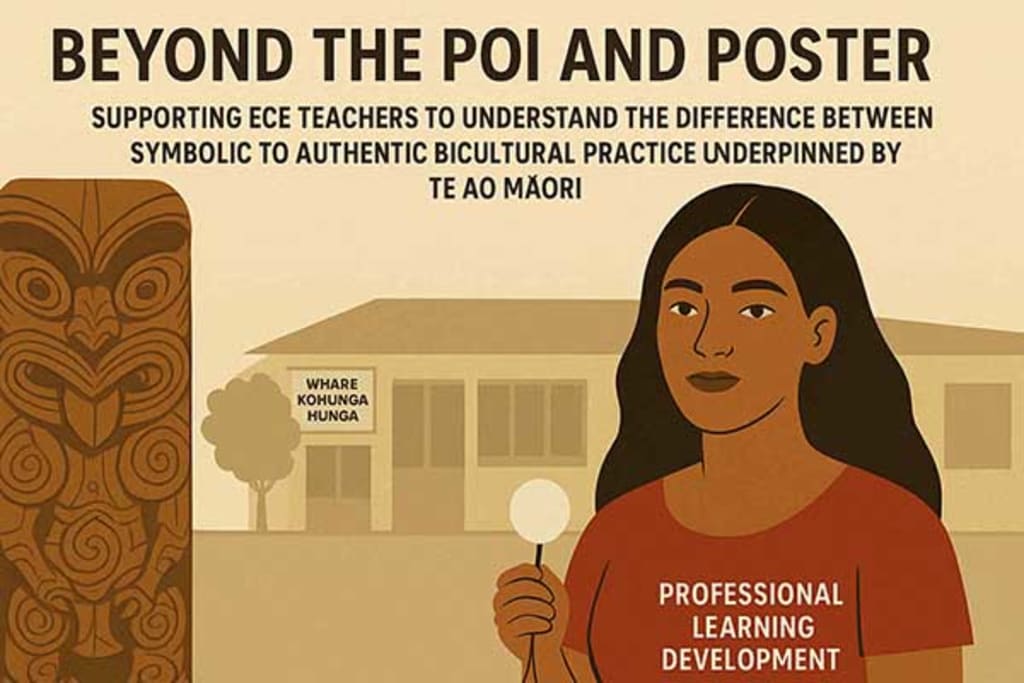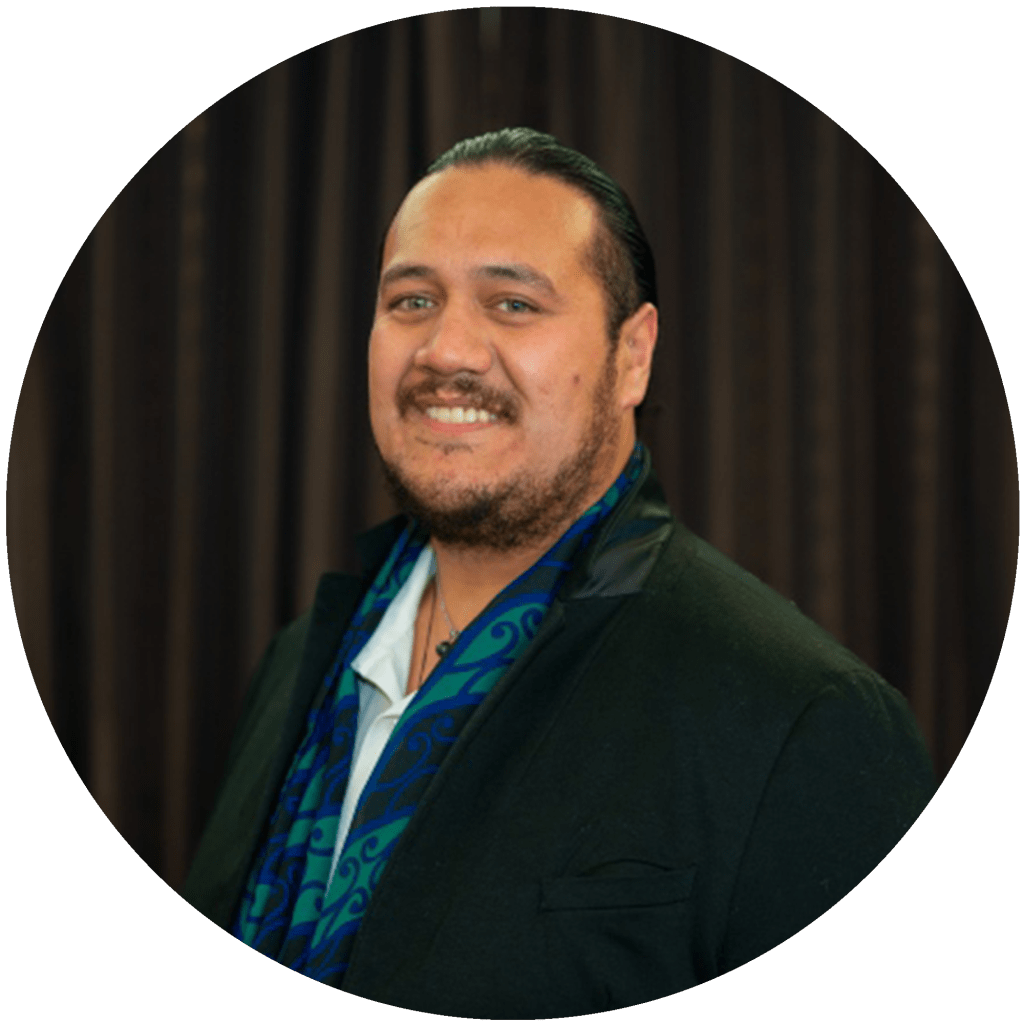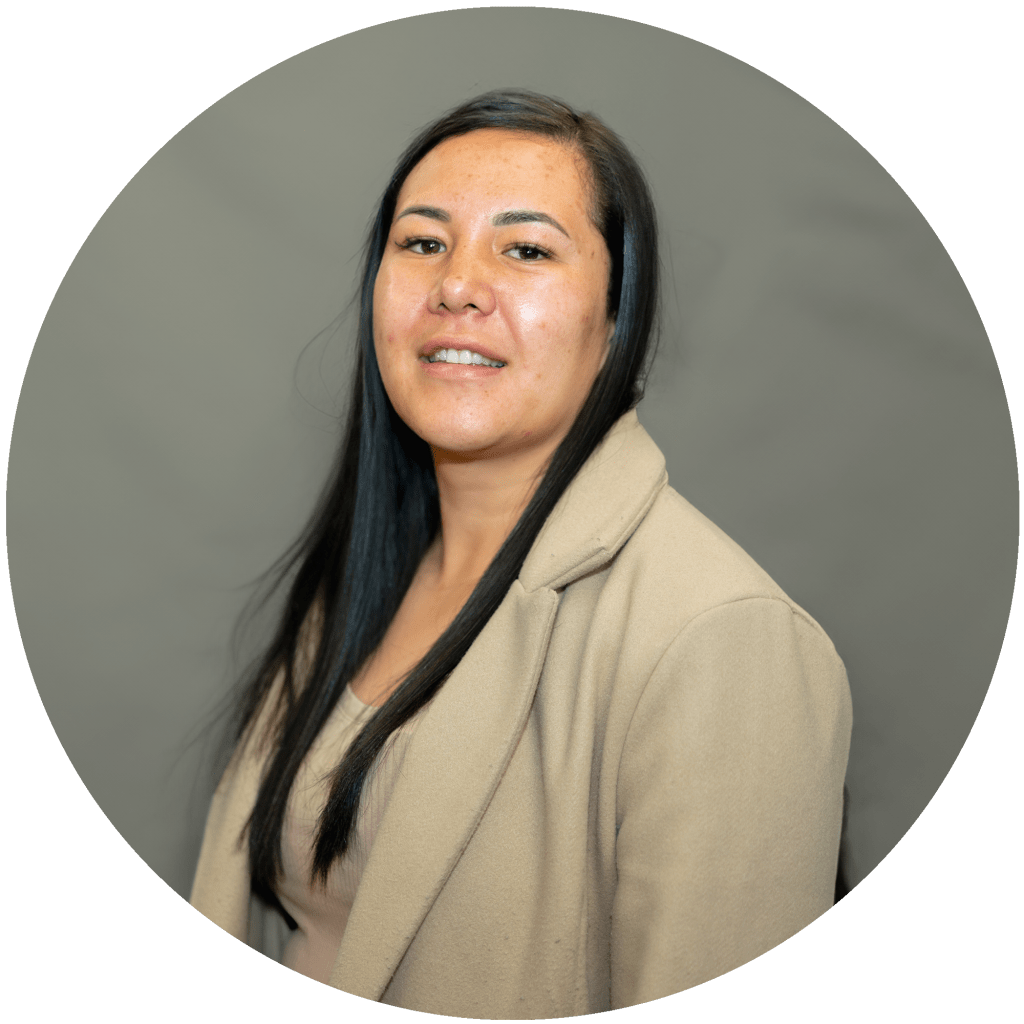Our website uses cookies
- Home
- Professional Development
- Beyond the Poi and Poster: Moving from Symbolic Compliance to Authentic Transformation | Ki tua o te Poi me te Pānui Whakaahua: Mai i te tirohanga aunoa ki te ngākau whakapono

Beyond the Poi and Poster: Moving from Symbolic Compliance to Authentic Transformation | Ki tua o te Poi me te Pānui Whakaahua: Mai i te tirohanga aunoa ki te ngākau whakapono
This PLD supports early childhood centres to move beyond symbolic gestures of bicultural practice toward authentic transformation.
To Register and Pay - once you have clicked on Qty1 for the number who are attending, please click on Time (under the date field), and the Buy Now option will appear.
Rotorua - Wednesday 19 November 2025 - 6-8pm
This PLD supports early childhood centres to move beyond symbolic gestures of bicultural practice toward authentic transformation. It will cover three focus areas within the Poua te Aroha Framework: Pou Mātauranga (integration of mātauranga Māori in curriculum and assessment), Pou Taiao (creating culturally responsive environments that affirm tamariki Māori identity, wairua, and belonging), and Pou Tautoko (developing culturally appropriate systems of support for kaiako, tamariki, and whānau).
The PLD is highly interactive, using practical tools such as the Pou Reflection Tool and SMART goal setting to help kaiako and leaders reflect critically on their current practice. Through group kōrero, case studies, and localised examples, participants will examine whether their practices are tokenistic or transformative and design clear actions to strengthen each pou.
The PLD also emphasises collective responsibility, positioning kaiako, leaders, whānau, and mana whenua as partners in the waka, with Māori leadership guiding direction.
The target audience for this PLD is kaiako, leaders, and governance teams within early childhood education centres who are seeking to strengthen their bicultural practice in Tiriti-honouring ways. It is particularly relevant for services wanting to move beyond surface-level gestures of compliance and build authentic partnerships with tamariki, whānau, and mana whenua.
This PLD is also suitable for professional leaders, kaiako in training, and centre managers who hold responsibility for curriculum design, assessment practices, and centre-wide policy development.
The Learning goals are:
- To support ECE centres to move beyond symbolic compliance toward authentic transformation in bicultural practice.
- To embed mātauranga Māori authentically in curriculum, assessment, and pedagogy.
- To create culturally responsive environments where tamariki Māori identity, wairua, and belonging are nurtured.
- To strengthen culturally appropriate systems of support for kaiako, tamariki, and whānau, grounded in kaupapa Māori values and Tiriti-honouring practice.
- To foster collective commitment by positioning kaiako, leaders, whānau, and mana whenua as partners in transformation
The learning objectives are:
- Critically reflect on current practices using the Poua te Aroha Framework (Pou Mātauranga, Pou Taiao, Pou Tautoko).
- Identify where their centre sits on the spectrum from symbolic compliance to authentic transformation.
- Use interactive tools such as the Pou Reflection Tool and SMART goal templates to create actionable plans for strengthening each pou.
- Collaborate with colleagues, whānau, and mana whenua to co-design strategies that reflect Māori ways of knowing, being, and doing.
- Commit to follow-up actions and ongoing evaluation to sustain transformation over time
DISCLAIMER: Interactive Activity: Centre Photo Tour
As part of the interactive aspects of this PLD, each participant is asked to create a short photo tour of their centre.
Please take photos of your centre set-up (these can be digital copies or printed images) and bring them to the workshop.
Before the PLD session, participants are invited to reflect on each image and pre-mark whether the environment shown is symbolic (surface-level or tokenistic) or authentic (deeply embedded and transformative).
These will be used as part of our group kōrero to explore how environments can move from symbolic compliance toward authentic transformation.

Presenter
Rahiri Ngapuhi, Regional Education Leader | Kaiārahi Mātauranga ā Rohe Te Rotorua-nui-a-Kahumatamomoe, Te Rito Maioha
Rahiri is a Regional Education Leader with Te Rito Maioha, responsible for supporting the Rotorua takiwā ako and ensuring that pastoral care for tauira is grounded in manaakitanga, whanaungatanga, and kotahitanga. He also lectures in MMT1 (Mātauranga Māori) and TPR3/PRAC3 (Professional Practice), weaving kaupapa Māori values through theory and practice.
Rahiri began his teaching career in 2015 at an iwi-run bilingual ECE centre led by life member Maureen Te Wehioterangi Jehly, an experience that inspired his ongoing commitment to Māori-led education. An alumnus of Te Rito Maioha, he holds a Bachelor of Teaching (ECE) and a Master of Education, with research focused on how mātauranga Māori is experienced by tangata whenua within English-medium Initial Teacher Education. Raised by strong wāhine Māori who fought for whenua, reo, mātauranga, and tino rangatiratanga, Rahiri’s upbringing in advocacy and activism continues to shape his worldview, research interests, and teaching practice. His passion lies in inspiring tauira to strengthen their connections to te reo, identity, and culture, and to honour Māori ways of knowing, being, and doing in their teaching journeys

Presenter
Aria Macredie, Lecturer | Kaiako, Te Rito Maioha
Aria is a lecturer with Te Rito Maioha, teaching across Mātauranga Māori 1 and Te Hā o te Kaiako as well as TPR1/PRAC1 (Professional Practice). Her role centres on supporting tauira in their studies while guiding them to understand their obligations as Tiriti-based kaiako and the influence of Te Tiriti o Waitangi on bicultural curriculum and practice. An alumni of Te Rito Maioha, Aria completed her Bachelor of Teaching (ECE) in 2020 and is currently undertaking a Master of Education. She began her teaching career in 2017 at a local Enviro Centre in Rotorua, where she gained experience in weaving localised knowledge, tikanga, and kawa into early learning environments. Born and raised in Rotorua, Aria still resides there with her five tamariki and is deeply passionate about te reo Māori and whakapapa. Alongside her lecturing, she is enrolled in He Kāinga mō te Reo to strengthen her reo, motivated by her daughter’s journey through kōhanga reo. Aria’s teaching interests lie in te ao Māori – language, identity, and culture – and she is committed to creating safe, supportive spaces where kaiako can grow their own cultural capabilities to teach confidently within bicultural frameworks underpinned by Te Tiriti o Waitangi and Te Whāriki.
PLD Traits
- Delivery
- In Person
- Location
- Rotorua
- Topic
- Cultural

